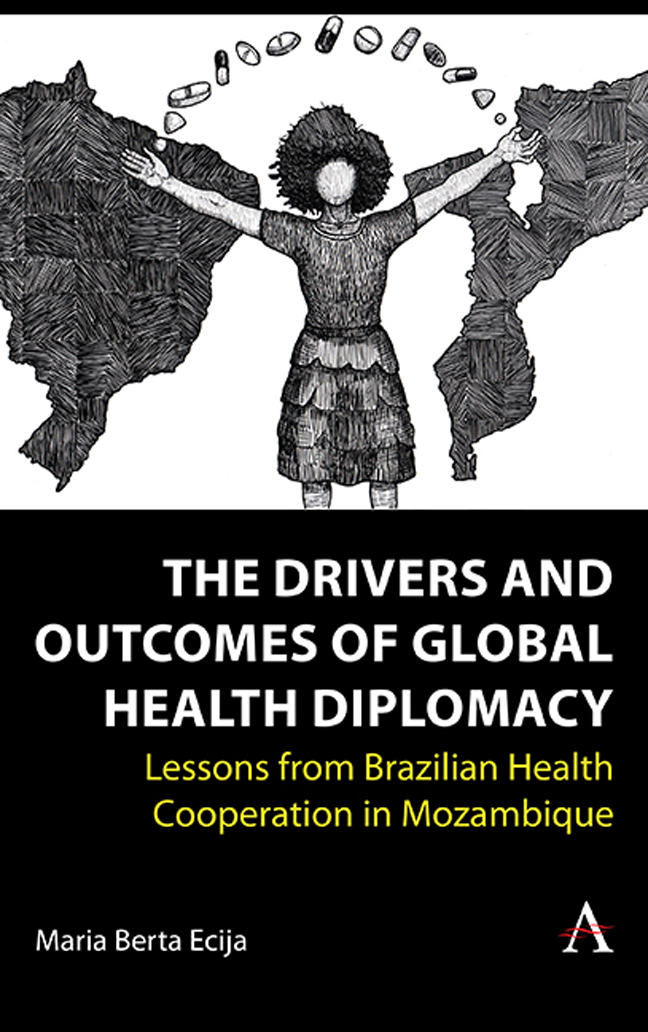 The Drivers and Outcomes of Global Health Diplomacy
The Drivers and Outcomes of Global Health Diplomacy Book contents
- Frontmatter
- Contents
- List of Abbreviations
- 1 Introduction and Methodology
- 2 Literature Review on Global Health Diplomacy – Brazil and Mozambique
- 3 Brazil and Global Health Diplomacy
- 4 Mozambique’s Foreign and Health Policy
- 5 Case Study of Sociedade Moçambicana de Medicamentos
- 6 Analysis and Outcomes
- 7 Conclusion
- Post-script: COVID-19 Disclaimer
- Bibliography
- Index
2 - Literature Review on Global Health Diplomacy – Brazil and Mozambique
Published online by Cambridge University Press: 29 February 2024
- Frontmatter
- Contents
- List of Abbreviations
- 1 Introduction and Methodology
- 2 Literature Review on Global Health Diplomacy – Brazil and Mozambique
- 3 Brazil and Global Health Diplomacy
- 4 Mozambique’s Foreign and Health Policy
- 5 Case Study of Sociedade Moçambicana de Medicamentos
- 6 Analysis and Outcomes
- 7 Conclusion
- Post-script: COVID-19 Disclaimer
- Bibliography
- Index
Summary
Literature Review
As set out by the main research question, the primary objective of this research is to address the power dynamics behind Brazil’s health cooperation with Mozambique. The partnership between these countries became very strong and promising in the early 2000s, when President Lula stepped into office in Brazil. According to Milani (2014, p. 7), health in the Brazilian context went through a constant process of internationalisation in the early 2000s, which happened ‘in parallel to the process of economic globalisation, such as the internationalisation of public policies and democratisation of the Brazilian system’. These changes have introduced new ideas and hierarchies into Brazilian foreign policy, especially in the realm of high politics and low politics. Within this context, health has become one of the axes of Brazilian foreign policy, especially because, as it will be argued throughout the literature review, it could navigate easily between low and high politics agendas. Moreover, it could build bridges with a multitude of actors and partners.
Fedatto (2017, p. 2298) points out that since the beginning of the 2000s, Brazil has tried to become more of a protagonist in discussions around global health. The main characteristics and debates adopted by the country have thus relied on the field of access to medicine, especially seeking to reduce the price of drugs at the international level. Meanwhile, in the national sphere, Brazil counted on its own national production of medicine to guarantee the distribution.
Throughout the literature review, the aim is to look at the different perspectives on the place of health in IR, and therefore in foreign policy agenda setting. Consequently, this will provide a base throughout the thesis for understanding the Brazilian strategy across different governments, namely, Fernando Henrique Cardoso (1994–2002), Lula da Silva (2003–2010) and Dilma Rousseff (2010–2014), contextualising Brazil’s historical context as a global health player. The interests and challenges of the foreign policy agenda will be debated, looking at the role of health in fulfilling some of the external goals of the country.
This thesis argues that there are three different moments that are crucial to understanding Brazilian foreign policy in health. The first is related to the country’s battle to have access to ARVs, which became the TRIPS battle under the Fernando Henrique Cardoso government (1994–2002).
- Type
- Chapter
- Information
- The Drivers and Outcomes of Global Health DiplomacyLessons from Brazilian Health Cooperation in Mozambique, pp. 31 - 74Publisher: Anthem PressPrint publication year: 2023
